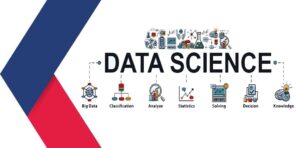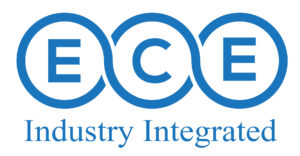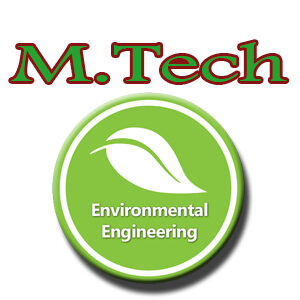Dept. of ECE-II At a Glance
July 15, 2024 2024-07-16 9:41Dept. of ECE-II At a Glance
The Department of Electronics and Communication Engineering, a consistently top-ranked department, is recognized by AICTE, which has a rich heritage and a strong reputation for R&D activities of internationally acclaimed standards, predominantly in the areas of Internet of things, Drones technology,Communications, Signal Processing and Microelectronics.
The college has initiated the Department of Electronics and Communication Engineering in the year of 2009 with 60 students intake, enhanced to 120 students intake in the year of 2011 and again enhanced to 180 students intake in the year 2019.
Presently there are 4 Professors, 4 Associate Professors, 26 Assistant Professors, sufficient number of technicians are working for the department. Many of our faculty is currently pursuing their Ph.D.
The Department of ECE imparts knowledge and training in Electronic Devices and Circuits, Electromagnetic Fields and Waves, Signal Processing, Switching, Communication Circuits, Networking, VLSI design, Microprocessors, Microcontrollers, Instrumentation, Image Processing, Microwave, Fiber Optics, Satellite, Wireless Communications, Radar and Embedded Systems, Artificial Intelligence & Machine learning and Internet of things.
The intensive training in these areas makes the students good Electronics and Communication Engineers.
They will be readily absorbed in industries, defense and government sectors.
In the near future, the department hopes to extend its research into newer areas like Energy Efficient Networks, Body Area Networks, High Precision Location and Navigation, Green Communication and Computing, Healthcare Informatics. The ECE department also hosts very active student organizations. These include an IETE student branch, The ISSE, ISTE memberships for faculty members. Aiding the student’s transition to the professional work environment are well established Co-Op and internship programs at the departmental as well as the college level. Students design, develop, construct, and evaluate a system. Faculty advisors assess the projects based on finished products, written reports, and oral presentations. The laboratory courses give students considerable experience in working closely with others in real world situations and solving open ended design problems. Our Alumni occupy key leadership positions in Industry, Academia, and National Laboratories in the United States and around the world.
Vision
Pioneering Electronics and Communication Engineering Education & Research to Elevate Rural Community.
Mission
- Imparting professional education endowed with ethics and human values to transform students to be competent and committed electronics engineers.
- Adopting best pedagogical methods to maximize knowledge transfer.
- Having adequate mechanisms to enhance understanding of theoretical concepts through practice.
- Establishing an environment conducive for lifelong learning and entrepreneurship development.
- To train as effective innovators and deploy new technologies for service of society.
Program Educational Objectives (PEO's)
- Graduates will demonstrate a strong foundation in electronics and communication engineering, applying theoretical knowledge to analyze and solve real-world industry problems.
- Graduates will exhibit creativity and innovation in the design, development, and implementation of electronic systems and communication solutions to meet industry needs through research and development.
- Graduates will seamlessly integrate into the electronics and communication engineering industry, adapting to emerging technologies, methodologies, and business practices throughout their careers.
- Graduates will engage in continuous learning, pursuing advanced degrees, certifications, and professional development opportunities to stay abreast of evolving industry trends and technologies.
Program Specific Outcomes (PSO's)
- An ability to Exhibit the design principles and knowledge in the state of art tools and apply them to develop reliable and efficient VLSI circuits and systems.
- Proficiency in using modern tools for simulation, modeling, and prototyping in the development of electronic systems.
Program OutComes (PO's)
Engineering Knowledge: Apply the knowledge of mathematics, science, engineering fundamentals and an engineering specialization to the solution of complex engineering problems.
Problem analysis: Identify, formulate, review research literature, and analyze complex engineering problems reaching substantiated conclusions using first principles of mathematics, natural sciences, and engineering sciences.
Design/development of solutions: Design solutions for complex engineering problems and design system components or processes that meet the specified needs with appropriate consideration for the public health and safety, and the cultural, societal, and environmental considerations
Conduct investigations of complex problems: Use research-based knowledge and research methods including design of experiments, analysis and interpretation of data, and synthesis of the information to provide valid conclusions.
Modern tool usage: Create, select, and apply appropriate techniques, resources, and modern engineering and IT tools including prediction and modeling to complex engineering activities with an understanding of the limitations.
The engineer and society: Apply reasoning informed by the contextual knowledge to assess societal, health, safety, legal and cultural issues and the consequent responsibilities relevant to the professional engineering practice
Environment and sustainability: Understand the impact of the professional engineering solutions in societal and environmental contexts, and demonstrate the knowledge of, and need for sustainable development.
Ethics: Apply ethical principles and commit to professional ethics and responsibilities and norms of the engineering practice.
Individual and team work: Function effectively as an individual, and as a member or leader in diverse teams, and in multidisciplinary settings.
Communication: Communicate effectively on complex engineering activities with the Engineering community and with society at large, such as being able to comprehend and write effective reports and design documentation, make effective presentations, and give and receive clear instructions.
Project management and finance: Demonstrate knowledge and understand of the engineering and management principles and apply these to one’s own work, as a member and leader in a team, to manage projects and in multidisciplinary environments.
Life-long learning: Recognize the need for, and have the preparation and ability to engage in independent and life-long learning in the broadest context of technological change.

















